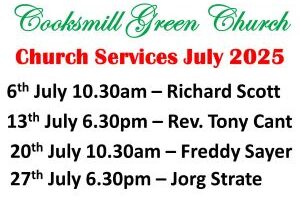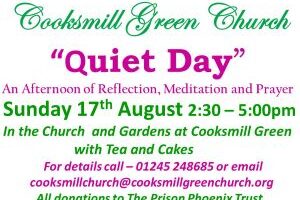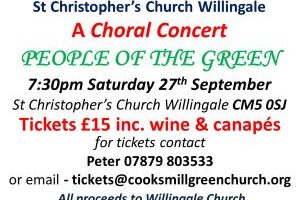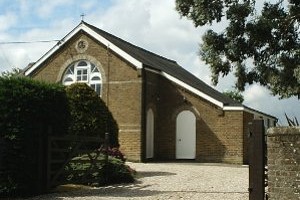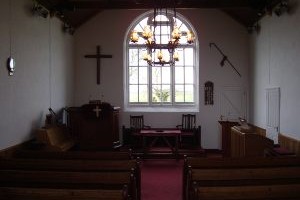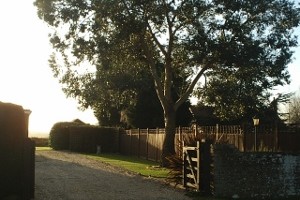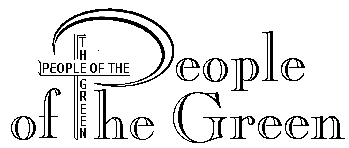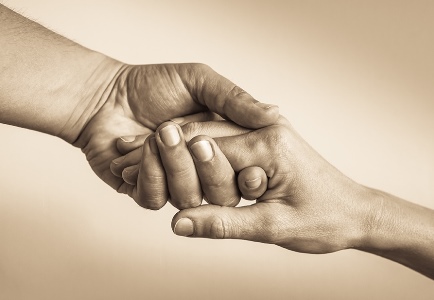Thought for the Month – July 2023
Pilgrims or refugees?
I heard the great English composer John Rutter recently talking about the Brahms German Requiem. He quoted the first line of the sixth movement taken from the Epistle to the Hebrews: “For here we have no abiding city, but we seek the city which is to come”, and he said, “We are like pilgrims – or refugees.” It was a comment that has stayed with me ever since: it was in the same week that I watched the last instalment of a BBC series called “Pilgrimage” and went to see “The Unlikely Pilgrimage of Harold Fry” at the Everyman – both, in different ways, very moving.
I started thinking about the idea of what it is to be a pilgrim and whether I qualify. The Bible is no help at all – the word does not occur in it: understandably, when even a twenty-mile walk from Jerusalem to Jericho was fraught with danger, people were not going to commit to long journeys. Nor, surprisingly, was Pilgrim’s Progress – I love the Vaughan Williams setting of this, but it is made quite clear in it that Pilgrim knows exactly where he is going and what he needs to get there. But when it comes to “No lion can him fright – he’ll with a giant fight; No goblin nor foul fiend can daunt his spirit” -well, call me a big wuss (you won’t be the first) but I think lions are best encountered behind bars at Colchester Zoo, and if you must fight, don’t choose someone bigger than yourself. And my problem is not with foul fiends, but with the nice ones: “Go on, have another ice cream / chocolate biscuit / G and T,” followed by the fatal words, “You know you want to!” As for Hymns Old and New, it has a ghastly “woke” version of Onward Christian Soldiers which ignores the fact that Christian Pilgrims don’t march Onward to the same rhythm as soldiers. Best binned.
I found it far easier to identify with Harold Fry (spoiler alert – if you haven’t read the book or seen the film, you MUST, and you must skip this paragraph). His pilgrimage was an act of faith; the book acknowledges that faith being illogical, doubt and uncertainty and, in his case, fatigue are understandable constituents of it. It is also a journey into his own past – he confronts in particular his own failure with his son. He learns to forgive himself for what he has done wrong; he comes to see that his view of the past is distorted by his sense of guilt, and that he needs to see things as they truly were; he then can move on to salvage what has seemed like wreckage in his life, principally his marriage, where love has become a stranger, but can also learn to accept that some things are irrevocable, cannot be changed, cannot be undone or rescued. All of these things resonate most powerfully with me.
The BBC series “Pilgrimage” – still on iPlayer and definitely worth a look – followed a group of minor celebs of different religious backgrounds as they walked the pilgrim’s way to the Sanctuary of Fátima in Portugal. I could say a lot about this, but I want to focus on what was to me the saddest moment. Only one person dropped out of this – even the devout Moslem, who struggled with a lot of Catholic iconography made it – and this at the last moment, when the site was in sight. All the ones of lukewarm or no faith made it, and all were uplifted by the experience. Only the born-again Christian turned aside, convinced he had no need of this. So, memo to all pilgrims: don’t let dogma, or habit, or pride blind you to God, wherever he may be found – which is everywhere.
Rutter also said we were refugees in this world. I was reminded of (Lord) Danny Finkelstein, whose book about his family was published that month, tracing his roots back to the Nazi death camps and Siberian starvation labour farms; I thought too of Stravinsky and Rachmaninov, who made new lives for themselves in the West but could never cease melancholy yearning for Mother Russia. It is easy as I type this in warm Cooksmill Green to feel that all is well. I read though that 108 million people in the world are refugees. We have a kinship with them; in our own lives too we have a duty, as Christ enjoins us, to be in the world but not of it. Our true home is elsewhere.
David
